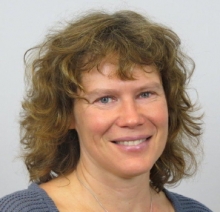- News
Issue:
A project aimed at establishing a framework to help cities better prepare for and respond to shocks and stresses on their water systems has been launched by international engineering consultancy Arup, with support from The Rockefeller Foundation.
The first phase of the project is due to run until January 2019. According to Arup, the aim of this phase is to develop the City Water Resilience Framework, which will provide a guide to cities of all sizes on how to understand and measure the resilience in their water systems. The goal of the project is to create a global standard for water resilience assessment that can be used to inform planning and investment decisions.
Arup sees that climate change and rapid urbanisation are placing increasing strain on water resources, with the prospect of cities experiencing increasingly frequent flooding and water shortages, the company stated in an announcement.
According to Arup, the framework project is aligned with The City Resilience Index, which it developed along with The Rockefeller Foundation. ‘The CRI articulates the resilience of an urban system in an accessible, evidence-based and measurable way to inform planning, development and investment decisions,’ the company stated, adding that the CRI has underpinned the 100 Resilient Cities programme.
Arup states that the ultimate aim is to increase the influence of cities in driving change and bringing together stakeholders from across a water basin to deliver better outcomes.
In a statement from the company, Dr Mark Fletcher, Arup Global Water Leader said: ‘Water systems are the lifeblood of a city and are increasingly coming under strain. The question we’re tackling is how we can understand the resilience of urban water systems to increasing shocks and stresses. To build the resilience of any city, the challenge is to recognise and understand the complexity of its urban water systems, environment and interconnection with communities and stakeholders across the water basin. We are establishing a framework to assess the water resilience of cities in a holistic and pragmatic way.’
Also in the statement, Dr Fred Boltz, of University of Massachusetts Amherst and CWRF Steering Group Chair, said: ‘This work will plug a gap in our understanding of the complexities of urban water systems. It will develop new knowledge and practical tools to enable cities to assess and plan for resilience. Our aim is not only to help cities identify key vulnerabilities, but also to improve their decision-making so they can prepare for a changing future.’
Keywords:
- Arup, urban water






